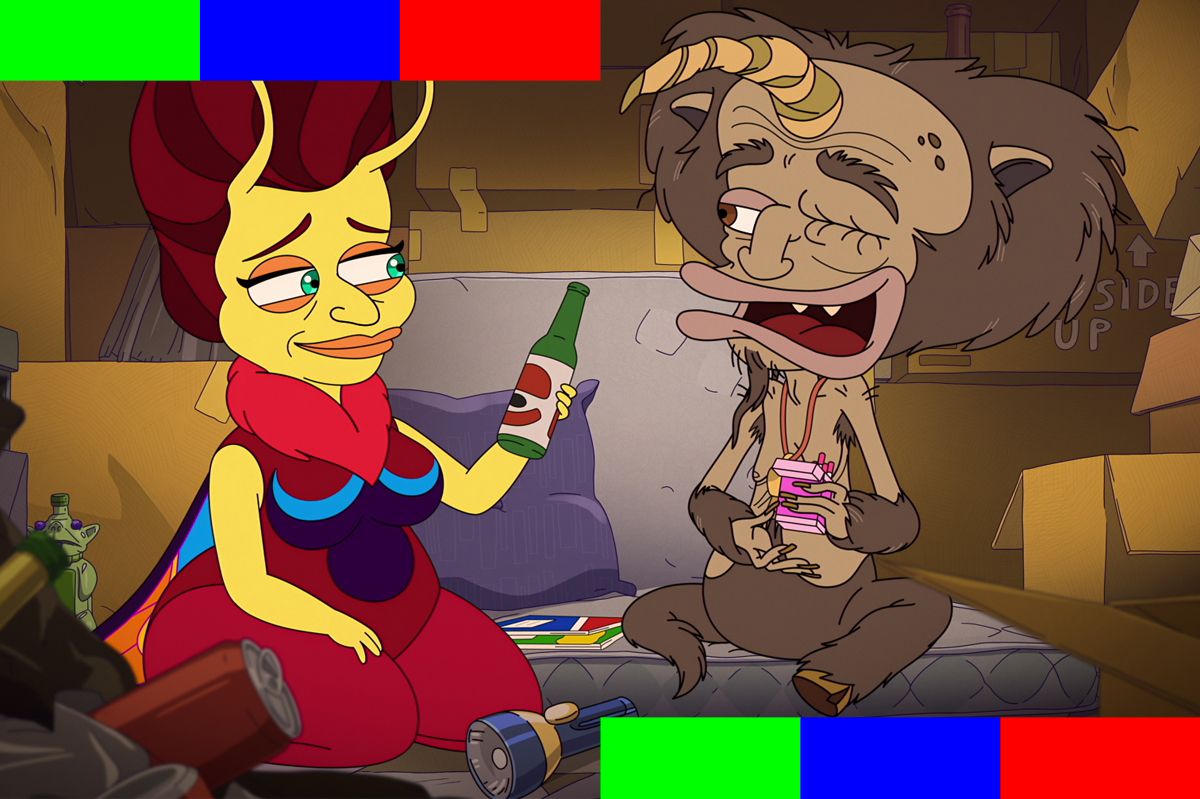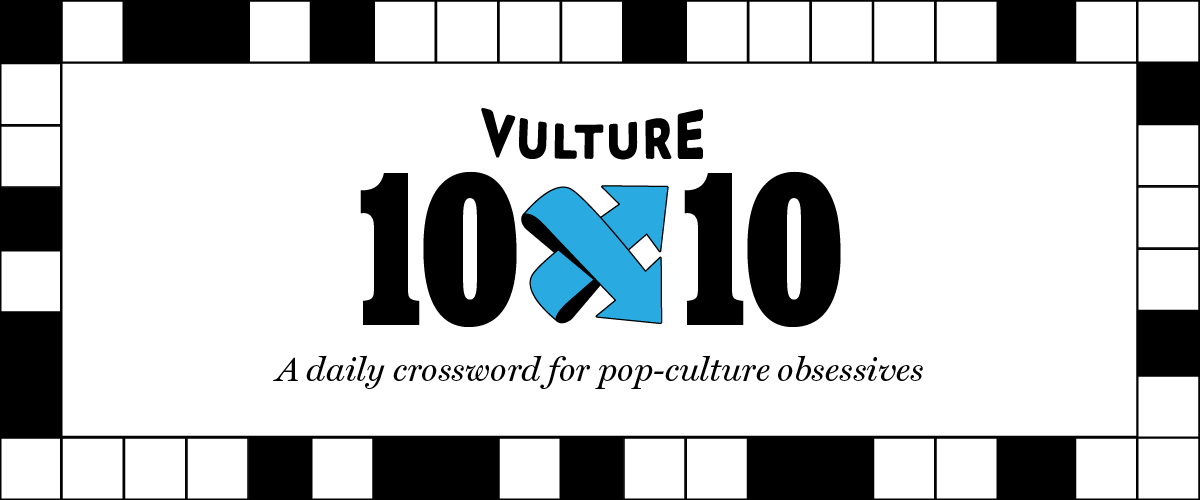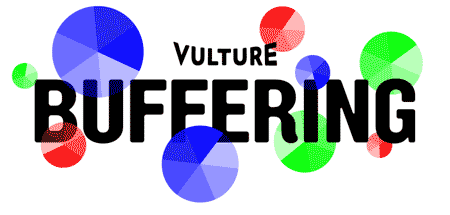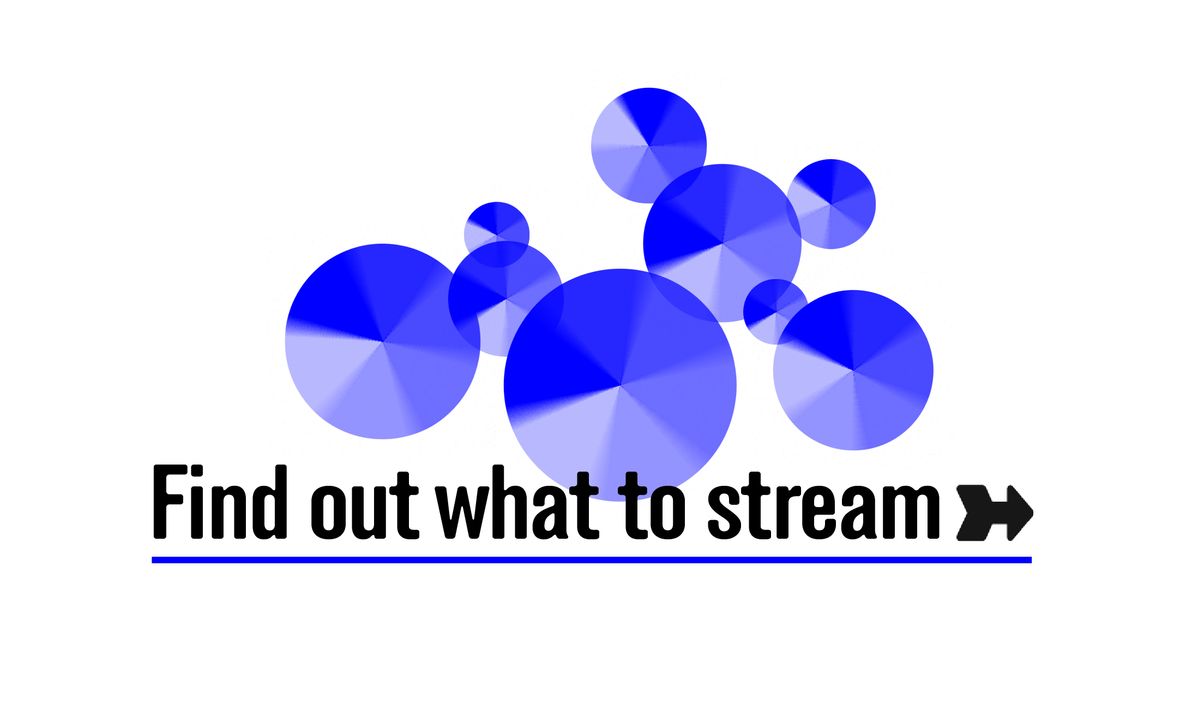 Happy St. Patrickâs Day to all who celebrate, and welcome back to another edition of Buffering. This week, our focus is on adult animation, which is booming throughout the streaming universe, particularly at Netflix. Tomorrow brings the season-one premiere of Big Mouth spinoff Human Resources, and industry insiders say the streamer has somewhere between one and two dozen animated projects for grown-ups in various stages of development. I hopped on the phone with Netflixâs adult-animation chief this week to talk about his strategy for, um, animation domination (sorry, Fox) and whether there are any risks of having too many toons. Also this week: Amazon finally closes its deal for MGM and Netflix is getting serious (again) about password-sharing. As always, thanks for reading, and please be sure to enjoy your Shamrock Shakes responsibly today. âJoe Adalian |
| Stay updated on all the news from the streaming wars. Subscribe now for unlimited access to Vulture and everything New York. |
 |  | | Human Resources, a spinoff of the popular Big Mouth. Photo: Courtesy of Netflix | | |
| Peak TV has been very, verygood for adult animation. Once the domain of Fox and a handful of cable networks, new non-anime cartoons geared toward grown-ups have exploded in number in the past few years, with almost all of the growth coming from streaming. By one estimate, there were over 100 adult-animation projects in production or the works last spring, double the tally from a year earlier. And while some of the increase can be credited to platforms looking to find pandemic proof programming during the earliest days of COVID, the trend can mostly be chalked up to the fact that streamers big and small have decided adult animation, like reality shows and young adult drama, has become an essential programming category. |
| Thatâs certainly true at Netflix. While it wasnât the first digital TV network to embrace adult animation â Hulu got there in 2013 with The Awesomes â the streamer has been aggressively programming the genre since BoJack Horseman and F Is for Family arrived on the scene back in 2014 and 2015, respectively. Netflix has developed a wide variety of animated shows, from sci-fi (Neo Yokio, The Midnight Gospel) to drama (the upcoming Blue Eye Samurai) as well as a slew of comedies. And while there have been some shows that didnât work out (RIP, Hoops), Netflix has also produced what are arguably streamingâs biggest animated hits to date between BoJack and the still-in-production Big Mouth. |
| On Friday, Netflixâs adult-animation unit will celebrate yet another milestone with the premiere of its first spinoff, Human Resources. The Big Mouth offshoot, which revolves around the Hormone Monsters and other emotional âhelpersâ seen in the original series, actually marks the first time any Netflix comedy has spawned a sequel â and thereâs more riding on its success than whether the service can chalk up another hit. With conglomerates such as WarnerMedia and Disney now using their extensive content libraries to build their streaming services, Netflixâs ability to tap into the biggest preexisting brands for programming has been severely restricted (though not completely shut off, as evidenced by this weekâs deal for more Dr. Seuss series). Anticipating this, Netflix has been rushing to build up its library of intellectual property, hoping a handful of its biggest shows can be turned into franchises. And as both The Simpsons and Family Guy have shown with their respective spinoffs, adult animation very much lends itself to universe-building. |
| Overseeing Netflixâs efforts in adult animation is Mike Moon, whoâs been at the streamer for a bit more than four years and has previously served long stints as an exec at Disney and Sony Animation. Unlike most TV suits, Moon started his career as an artist, working for more than 15 years as an animator at companies such as Warner Bros., Nickelodeon, Cartoon Network, and Hanna-Barbera. Ahead of the Human Resources launch, Buffering caught up with Moon to talk about how he decided to green-light a Big Mouth spinoff, whether he thinks the animation boom is a good thing for the industry, and why he believes an upcoming animated project from Kid Cudi could be one of the biggest TV events of the year. |
| So let me start by asking how you got to the point of doing a Big Mouth spinoff. Was it something you had been pushing the producers to think about, or was it something more organic, where they came to you one day with an idea? |
| It was pretty organic. The team had had tremendous success with the launch of the show, and at the same time, we were broadening our relationship with the creators because we love working with them so much. And they reached out and said, âWe have an idea that really expands the universe, and we want to talk to you about it.â We heard the pitch, and it was like, âYes, of course.â |
| Since Netflix is relatively young and has mostly focused on continually doing new things, there havenât been many spinoffs. I believe this will be the first spinoff of a Netflix comedy series. Does it feel like something of a watershed? |
| For us, it really felt like it was a real signal to us of the maturity of our adult animation offering â that weâre in the place where we can have the success on a show that really justifies spinning it off and going deeper in the world while Big Mouth is still going. Itâs also a testament to the show and how much it has resonated with people all over the world. And I love that itâs our first animated spinoff. |
| And now that youâre in the spin-off business, how many more can we expect? |
| There are some extensions that you will see within the adult animation action slate, where I think itâs organic for those to have an extension. But I think within the comedy world, Human Resources is the only one currently. |
| Do you worry about doing too many of them? Broadcast TV is now filled with three versions of every hit show it seems. Do you think at some point you start doing a lot more? |
| We havenât had that many spin-offs actually pitched. I think a lot of [producers] have felt that their shows have come to a logical conclusion, or theyâre not to that point yet in the life cycle. I think itâs always a challenge, especially in the comedy space, with spinoffs. A lot of times spinoffs sort of get smaller from the source material. I would always want to make sure with any of the spinoffs of any of our characters, that itâs expansive of the world versus somehow feeling a bit smaller, a bit narrower. |
| Adult animation has boomed as more big companies launch streaming services. It seems like every new streamer has a half-dozen or more shows in the works, even the smaller ad-supported ones. Is it possible the marketplace is already oversaturated, and that could be bad for the genre? I donât know if reality TV got better when we went from 50 shows to 500. |
| I think high water raises all boats. Itâs really made everybody bring their A game across the entire industry. Itâs awesome to see how much animation production is going on. As someone whoâs worked in the business for over 30 years, Iâve never seen it like this across all content categories â thatâs kids, thatâs adults, thatâs preschool, itâs film. |
| How do you make sure you remain a leader with so much new competition? |
| There are lots of strategic things that we have done, whether itâs overall deals with select talent, overall deals with outside studios, building our internal studio for select projects and select relationships. So making the right bets on talent, making the right bets on partnerships â I think all of those issues are crucial to our success. And being really proactive with development, too, not just sitting around passively, waiting for the pitches to come in. Really going after talent that we think has a great voice, has a great point of view, has been a huge part of the strategy as well. |
| A risk that we all have with so much business, with so much activity in the industry, is that in animation youâve got a thousand points of potential failure in the pipeline because so many hands and so many bodies touch it at every single step. Thatâs really the piece that Iâm super mindful of: There is such an alchemy to how any of these shows come together. And all of those pieces need to be rowing in the same direction and in total alignment. I think staying ahead of the challenges â thatâs crucial for the business. |
| You donât have access to so much IP from big studios now that Warner Bros. and Disney and Universal are all using their animation libraries to launch new shows. Is that more of a challenge for Netflix? |
| We actually do have quite a bit of IP that weâve pursued on the action and genre slate. Some of the IP that weâve looked at has been really rooted at the creator level. A lot of these creators have such a distinct point of view and such a distinct execution, whether itâs someone like Matt Groening, who did Disenchantment for us, or Waco OâGuin and Roger Black (Paradise PD), who are doing Farzar for us, or Alex Hirsch (Inside Job), who weâre developing with. They all have very unique bodies of work, and to tell more stories with them, with new characters in a new way, I think thatâs been an awesome path for us, and weâve been really successful at it. Weâve built our own IP. A healthy balance is whatâs most important. |
| Some of the biggest successes in adult animation, including Big Mouth, have been shows that very much embrace the raunchier side of comedy, even if they do so in a smart way. Is expanding the definition of what breaks out in adult animation one of your goals? |
| Oftentimes people reduce it to super-raunchy, dorm-room humor. And I think the real story is so much broader than that. The key for us with the raunchier shows is that theyâre offset by heart, and youâre earning the ability to be adult with the content. Big Mouth does that beautifully; I think Human Resources does it beautifully. Most people who have watched Human Resources so far have commented on the episodes that made them cry. |
| I think long term, youâre going to see a lot of different tones, and youâre going to see shows that live all over the spectrum. So I think youâre going to have things that feel more living-room appropriate, or more in that almost PG-13, network-adjacent space. And then youâll have the more adult ones, and I think theyâre both going to have tons of fans and tons of people who come to them for a different experience. And as long as youâve got boatloads of heart and character and warmth, I think it allows success on both sides of the equation. |
| Kid Cudiâs upcoming event series Entergalactic seems like the kind of show that fits in with that attempt to break out of the usual adult animation boxes, right? |
| Itââs going to be a monumental show for the industry. This is something we did with Kenya Barris and Kid Cudi. Itâs a very modern, street fashionâforward, art-forward, culture-forward execution on what would be a traditional rom-com. And itâs going to blow peopleâs minds. The cast is incredible. People are laughing screening it, people are crying screening it. Itâs obviously got a ton of music in it. It looks like nothing else. It just looks like candy, and you just want to jump into it. Itâs so aspirational, itâs so different, yet itâs completely inviting and warm and a delight. |
| Iâve been excited for your animated remake of Good Times. It was ordered back in 2020, but since then, you havenât said much about it. Where is it in the development pipeline? |
| That is such an iconic, gigantic title. It means so much to so many people all over the world. I think the timing is all about us getting it right. Itâs going to be exquisite. Itâs got an amazing team behind it, not to mention Norman Lear, Seth MacFarlane, and Steph Curry. The real challenge there, which all the producers were keenly aware of, is how do you justify it being animated without just making it an animated retelling of the same story. Thatâs always the case when you take something from live-action into animation. And I think the team has absolutely figured that piece out. |
| Given the lead times for animation, Iâm guessing itâll be at least another year before we see it? |
| Yeah, I think youâre a year out. |
| Netflix has had such success finding shows from around the world and making them into global hits. How much is international adult animation â aside from anime â part of your plan over the next few years? |
| We have executives all over the planet who are developing all sorts of content slates. And when there is an amazing adult-animated title that comes in, it definitely gets flagged for everyone pretty quick. Weâve got all sorts of different ways of collaborating. Tear Along the Dotted Line was one of the most recent launches that was totally driven by the team out in Italy, and they completely stuck the landing. The show is so good. Thereâs a show weâre doing right now with some Norwegian creators who are in Oslo doing all the scripting, but weâre actually producing the show here in-house. We had another title that we just released out of London a few months back called The House that was fully produced by Nexus Studios in London, but they worked with our team. So itâs a real mixture, and there are so many exciting things on the horizon. I think everybody in this moment in time understands the power of animation and how it can travel so incredibly well. It can come from anywhere. The whole animation industry has really opened up. Even a show like Entergalactic â the pre-production crew on that title lives in 20 different countries, which is just amazing and unheard of in terms of how a lot of these shows typically get produced. |
| Historically, broadcast networks liked animation because it was much more cost-effective. The price tag was just smaller. Is that still the case these days? |
| I think the truth is there is such a huge scale.There is stuff that is produced at a real modest price point. Thereâs also stuff that is super-premium and super-expensive. I think itâs hard to say exactly. I do think one of the challenges is how long the timelines have been to produce shows. Over the next few years, youâre going to see a lot of innovation in terms of a quicker, more reactive pipeline. Most of these shows are still produced in a pipeline that dates back to the 1970s. So I think youâre going to see a lot of innovation. That doesnât necessarily make anything cheaper, but I donât think itâs about that. I think what it is going to be about is just being more reactive with the storytelling, being more iterative with the jokes and the characters and the sequences and the storyboards. I think youâre going to see ideas get to screen a lot quicker in the next few years. Itâs top of mind for pretty much everyone in the industry. |
| Youâve done a lot of deals with big names in animation, people like Mike Judge and Matt Groening or even the talent behind Big Mouth. How important is it for you to get newer voices, both in terms of experience but also in terms of life experience and cultural diversity? |
| It is absolutely crucial for our success. Part of the joy of having an in-house studio is we can incubate so many of those relationships. And it gives us the opportunity to nurture talent, nurture new voices. Weâve got an incredible inclusion and diversity team embedded in the animation team. Weâve got an incredible outreach team embedded in our process. It affects everything we do, from the hiring of the showrunners to development to the staffing of storyboard artists and designers and writers and editors. I think when you look at the slate in the coming years, you will see the products of that. |
| Right now, your shows are released via the binge model, like most titles on Netflix. But some other specialty genres, most notably unscripted, have started playing with release schedules, putting out a few episodes every week. Is that something youâre thinking about with animation? |
| I think nothing is off the table. There are a couple secret things that we are working on right now that really experiment with how weâre releasing things. Beyond that, youâre also going to see a lot of different formats.Weâre working on our first hour-long animated drama right now, Blue Eye Samurai, which is a real treat, and itâs totally different. So I think in the next few years, youâll see us trying different things. |
| One decision Netflix made a couple years back that really shocked animation fans was the cancellation of Tuca & Bertie after just one season. It got such amazing reviews and seemed beloved by folks who watched it. Does the way that show ended mean we shouldnât expect to see more from those producers, who also worked on your first breakout animated hit, BoJack Horseman? |
| Look, we loved Tuca, and unfortunately, it just didnât find an audience on service. We love the creative team. We would love to do more with them. |
| So do you think it would be possible weâd see something new from those producers? |
| I think itâs entirely possible. We had such a great experience with them. And I would like to think our relationship is fantastic. |
| This interview has been edited and condensed for clarity. |
| â½ It seems March is now known for three things: St. Patrickâs Day, college hoops, debates over Daylight Saving Time ⦠and Netflix preparing customers for a crackdown on password sharing which (so far) has yet to come. A year ago this week, the Streamable reported on a handful of users whoâd been getting messages from Netflix reminding them that letting non-household members âborrowâ log-in was technically a no-no. The service said it was just a test, but after a million panicked tweets and stories, company execs used an earnings call the next month to basically tell everyone they should chill: âWe test many things but we would never roll something out that feels like turning the screws,â company founder and co-CEO Reed Hastings said during an interview in April. The mini-furor quickly died down, and the world moved on to finding other things to be annoyed at Netflix about. |
| But now, right on schedule, Netflix is back with some new March madness on the password front. As my colleague Eric Vilas-Boas over at Vultureâs Streamliner reported yesterday, the platform Wednesday said it was once again testing a way to make freeloaders pay their fair share. Some users in three Latin American countries will soon get a message from Netflix if the streaming giant notices too many people logging into their account from outside the home, asking them to âupgradeâ to a plan that makes such password-sharing officially sanctioned (in exchange for paying a few dollars more). Unlike last yearâs test in the U.S., this experiment puts the burden on the person who controls the account (rather than the moochers). Whatâs also interesting is that Netflix actually decided to write a blog post (really a press release) outlining this test, rather than simply wait for someone in the media to catch on. To me, this suggests Netflix might be getting just a bit more serious about finally addressing an issue itâs been talking about for years â the topic came up during an earnings call in 2019 â but until now hasnât really seen much reason to âfix.â That said, Iâd be pretty surprised if Netflix got too strict with password sharing anytime soon, particularly given how competitive the streaming marketplace has become. Hastingsâs remark last year about âturning the screwsâ shows he understands the sensitivities involved, and probably has no desire to see Netflix start acting like cable companies did back in the 1980s and â90s, when the industry enlisted the help of police to actually arrest folks who pirated their MTV and HBO. |
| â½ MGM is now officially a tiny little division of Amazon, with the news today that the company has closed its purchase of the iconic Hollywood studio. As I wrote last year, the deal is mostly about giving Prime Video more IP to exploit (a Rocky TV series seems inevitable), with the thousands of old movie and TV titles a nice little fringe benefit. Whatâs still unknown is how current MGM leadership will operate under Amazonâs management. For example, reality guru (and, sadly, Trump enabler) Mark Burnett currently heads up MGMâs TV division, and in theory, he could be a great asset to boost Prime Videoâs unscripted offerings (which have lagged behind the platformâs much more successful scripted shows and movies). But Burnett has always been an entrepreneurial type, so it wouldnât be shocking to see him depart MGM in the coming weeks or months, either. The other unresolved question is what Amazon does with Epix, the premium cable/streaming service controlled by MGM. Amazon already sells Epix to customers through its Prime Video Channels program, and now that it owns the brand, it could decide to scale up Epix though more aggressive discounting â or wind down the service altogether. Stay tuned. |
 |  | | |
| Sign up to receive Vultureâs 10x10 crossword every weekday. |
| Enjoying Buffering? Share this email with your network or sign up to get the newsletter in your inbox every week. |
| |
|




